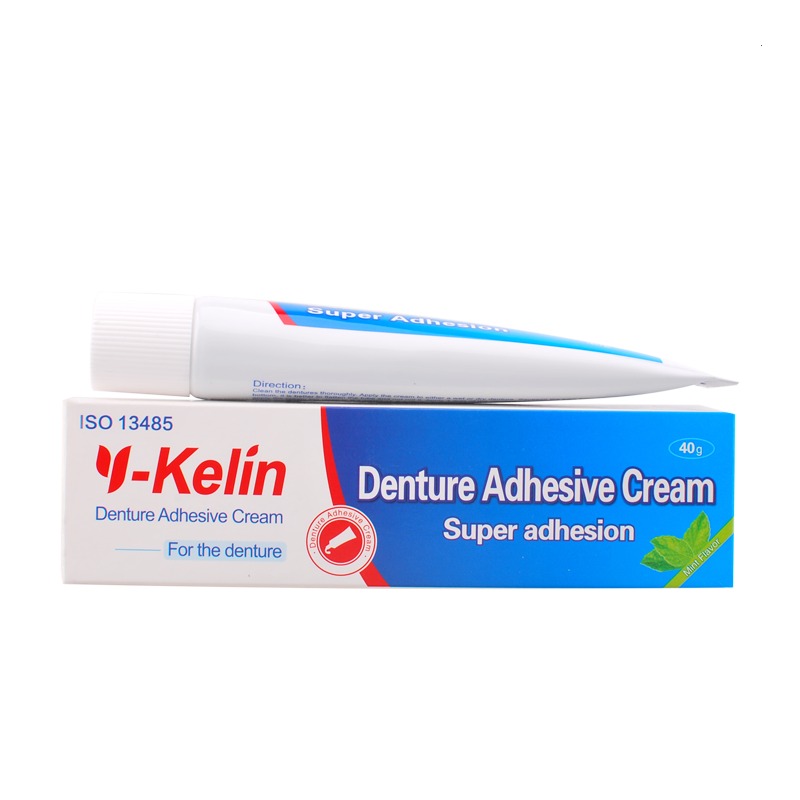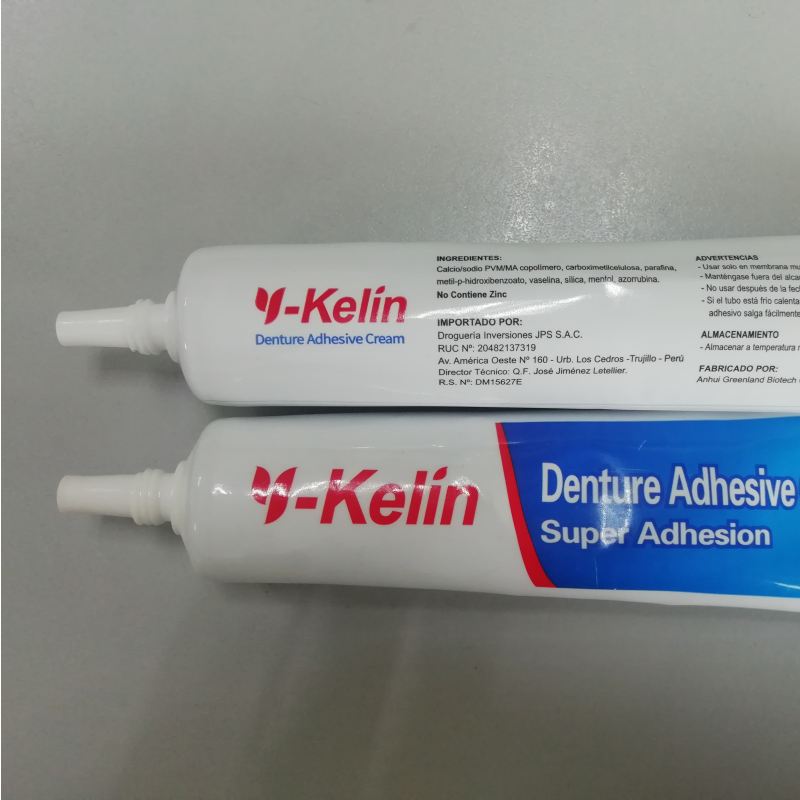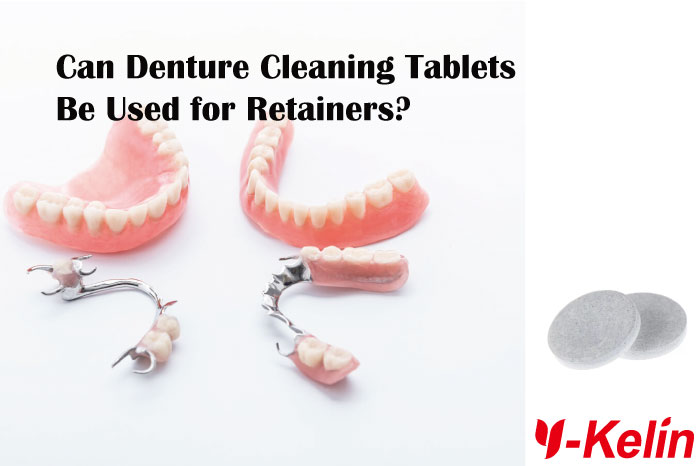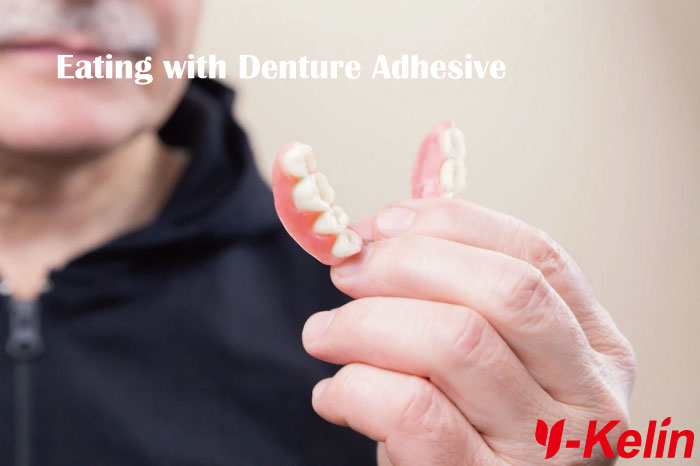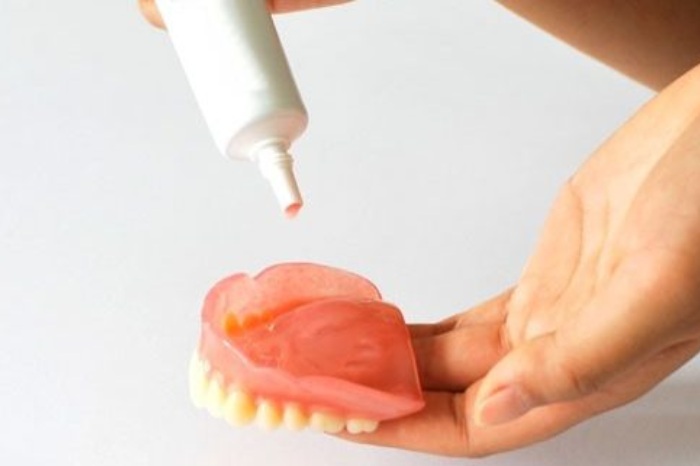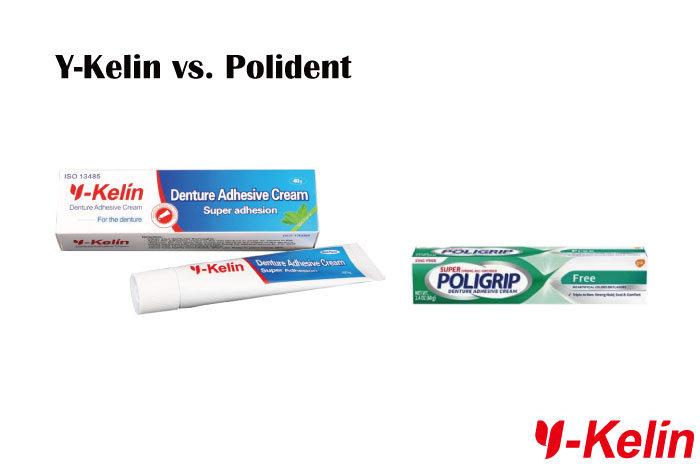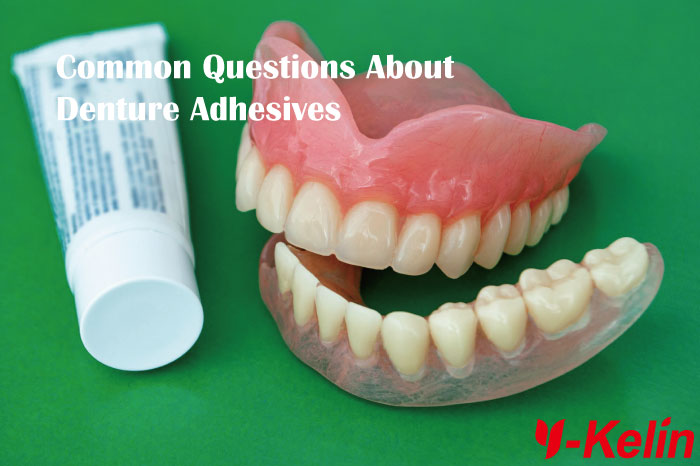
Common Questions About Denture Adhesives
Published On:
Denture adhesives can be confusing. If you’ve ever wondered how they work, when to use them, or which type is best, you’re not alone. Many denture wearers have the same questions.
Denture adhesives help keep dentures in place by creating a secure bond between the denture and the gums. They can improve comfort, reduce movement, and prevent food particles from getting under the dentures.
But with so many types available, and various ways to apply and remove them, it’s important to understand how they work. Let’s dive into the most common questions about denture adhesives.
Common Questions About Denture Adhesives
What is denture adhesive?
Denture adhesive is a substance that helps keep dentures in place. It creates a seal between the denture and the gums, preventing slippage and improving comfort.
Denture adhesive is a paste, powder, or strip that provides extra grip for dentures. It helps keep them stable throughout the day, especially for those with loose-fitting dentures.
Why is denture adhesive needed?
Some people assume dentures should fit perfectly without adhesive. While this is true for well-fitted dentures, adhesives can provide additional stability, especially when dentures start to loosen over time.
| Benefit | How It Helps |
|---|---|
| Extra stability | Reduces slipping when eating and speaking |
| Comfort | Helps prevent sore spots caused by movement |
| Protection | Seals out food particles, reducing irritation |
Many denture wearers use adhesives daily to improve their experience. Even with a good fit, adhesives can make wearing dentures feel more secure.
Types of denture adhesive?
Denture adhesives come in different forms. Each type has its own advantages depending on personal preference and denture fit.
The main types of denture adhesives are creams, powders, strips, and wafers. Each provides different levels of hold and comfort.
Comparing different types of denture adhesives
| Type | Pros | Cons |
|---|---|---|
| Creams | Strong hold, easy to apply | Can be messy, may leave residue |
| Powders | Easy to clean, no mess | May not provide as strong a hold |
| Strips | Pre-measured, convenient | Less flexible in application |
| Wafers | Provides even distribution of adhesive | Not as common, limited availability |
Each type has its own benefits. Some people prefer powders for easy cleanup, while others like the strong grip of creams.
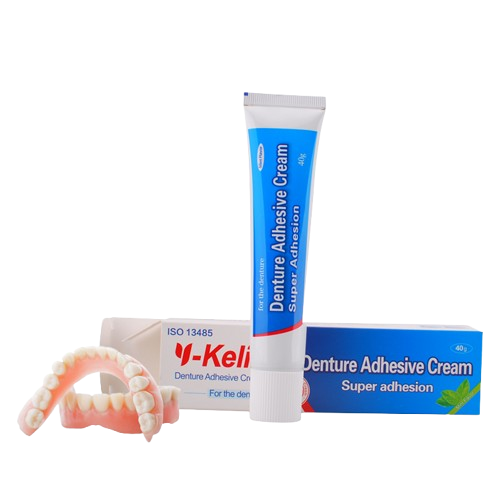
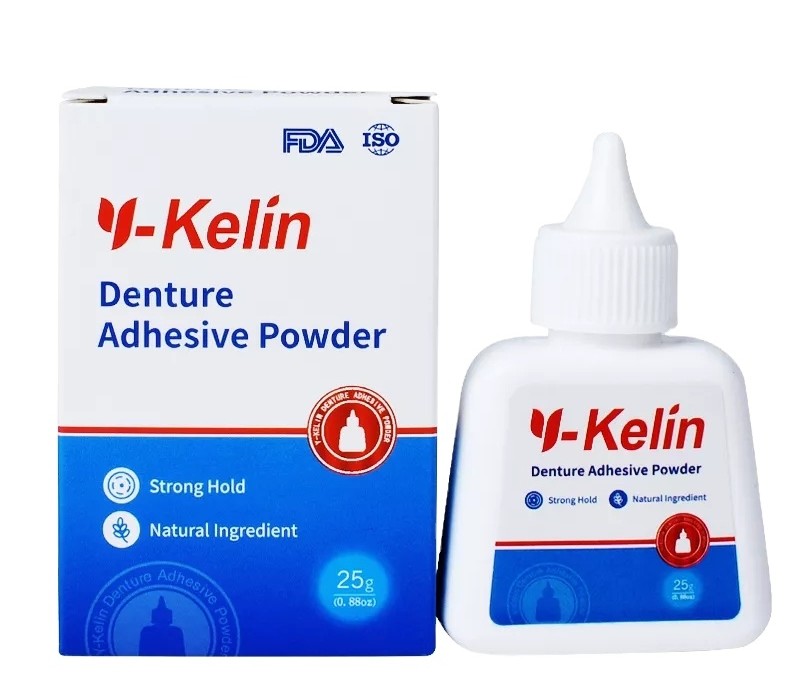
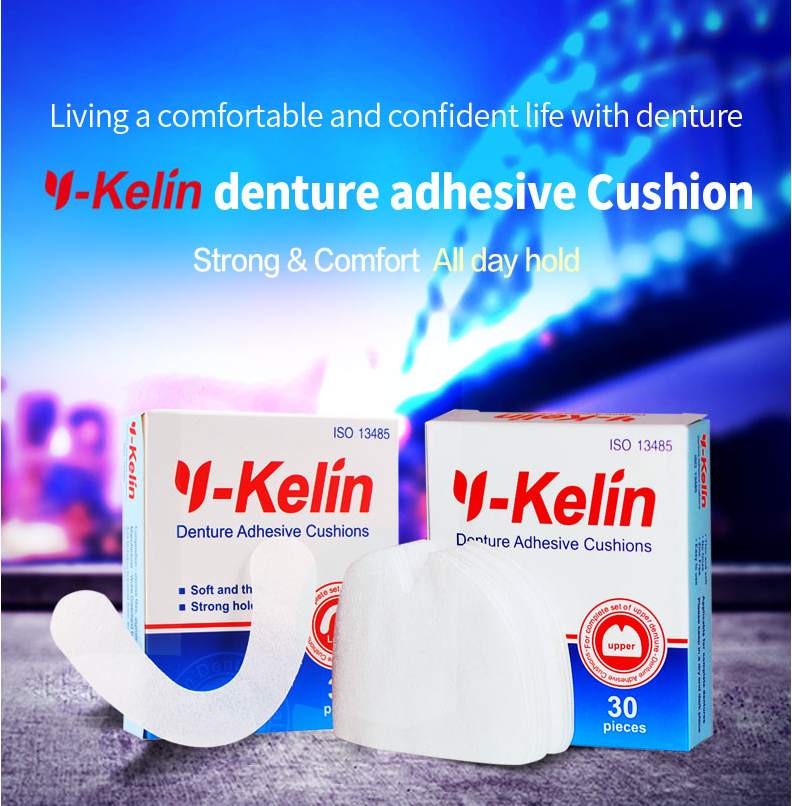
How do denture adhesives work?
Denture adhesives work by forming a thin, flexible layer between the denture and gums. This creates suction, helping to hold the denture in place.
Denture adhesives work by absorbing moisture and forming a secure bond between the gums and the denture base. They help reduce movement and improve comfort.
The science behind denture adhesives
Most adhesives contain a mix of natural and synthetic polymers that react with saliva. This reaction helps create a firm hold.
| Ingredient | Function |
|---|---|
| Cellulose gum | Absorbs moisture, creating a sticky bond |
| Petrolatum | Helps the adhesive spread evenly |
| Zinc | Some adhesives contain zinc for a stronger hold (but should be used in moderation) |
Over time, saliva and food particles can break down the adhesive, which is why reapplication may be necessary.
How do I use denture adhesive?
Applying denture adhesive correctly can make a big difference in how well it works.
Apply a small amount of adhesive to clean, dry dentures. Spread evenly, avoiding the edges. Press dentures firmly into place and hold for a few seconds.
Steps for applying denture adhesive
- Clean your dentures – Remove any old adhesive and rinse your dentures.
- Apply the adhesive – Use a small amount; too much can cause oozing.
- Place dentures in your mouth – Press and hold firmly for a few seconds.
- Wait before eating or drinking – This helps the adhesive set properly.
Avoid using too much adhesive. A little goes a long way.
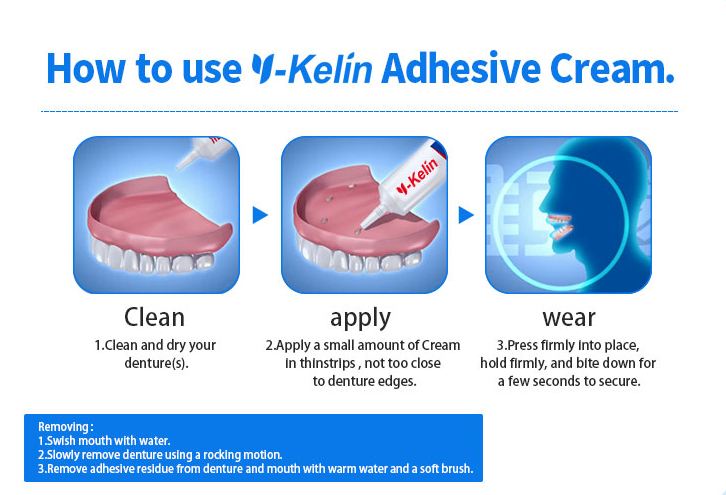
When can I start using denture adhesive?
Many new denture wearers wonder when they should begin using adhesive. Using it too soon might cause issues, but waiting too long might make the adjustment period harder.
Denture adhesive can be used once your gums have healed after getting dentures. This usually takes a few weeks, but consult your dentist for the best timing.
Factors that determine when to start using adhesive
The right time to use denture adhesive depends on several factors:
| Factor | How It Affects Adhesive Use |
|---|---|
| Healing time | Gums need time to recover after extractions |
| Dentist recommendation | Some dentists suggest waiting a few weeks |
| Type of denture | Immediate dentures may require early use |
If dentures are placed immediately after tooth extraction, adhesive use may be delayed to allow proper healing.
Why should I use denture adhesives?
Some people hesitate to use denture adhesives, believing that well-fitting dentures shouldn’t need them. However, adhesives offer several benefits beyond just keeping dentures in place.
Denture adhesives improve comfort, enhance stability, and prevent food particles from getting under the dentures, reducing irritation.
Key benefits of using denture adhesive
| Benefit | Why It Matters |
|---|---|
| Increased comfort | Reduces gum irritation and pressure points |
| Better stability | Prevents slipping while talking or eating |
| Food protection | Stops food particles from getting trapped |
Even well-fitted dentures can benefit from adhesive, especially for those with an active lifestyle.
What denture adhesive should I be using?
Choosing the right denture adhesive depends on your needs, lifestyle, and personal preferences. Different adhesives offer varying levels of hold and ease of use.
The best denture adhesive depends on individual preference, but popular options include pastes, powders, and strips. Consider comfort, strength, and ease of removal.
How to choose the right adhesive
| Type | Best For |
|---|---|
| Creams | Strong hold, long-lasting |
| Powders | Easy to clean, lightweight hold |
| Strips | Mess-free, easy application |
Experimenting with different types can help you find the best one for your dentures.
Do I need denture adhesive if my dentures fit well?
One common question is whether adhesive is necessary for well-fitting dentures. While a good fit reduces the need, some still prefer the added security.
If your dentures fit well, you may not need adhesive. However, some wearers still use it for added stability and confidence.
When should you still use adhesive?
- Eating certain foods – Sticky or hard foods may cause movement.
- Speaking in public – Adhesive can prevent accidental slippage.
- Active lifestyles – Extra hold can be beneficial for sports or physical activity.
Using adhesive isn’t mandatory, but it can provide extra comfort.
How much adhesive should I use?
Applying the right amount of adhesive is key to a secure fit without excess residue.
Use a small amount of adhesive—too much can cause oozing. Start with a thin layer and adjust as needed.
How to measure the right amount
| Denture Type | Recommended Adhesive Amount |
|---|---|
| Full dentures | 3-4 pea-sized dots |
| Partial dentures | 1-2 pea-sized dots |
Using less adhesive is better. If your dentures still feel loose, consult your dentist.
How do I apply denture adhesive properly?
Applying adhesive correctly ensures a secure fit without discomfort or mess.
Clean and dry your dentures before applying adhesive. Use a thin, even layer, avoiding the edges. Press firmly into place and hold for a few seconds.
Step-by-step application guide
- Clean dentures – Remove old adhesive and rinse.
- Apply adhesive – Use a small, even amount.
- Place dentures – Insert and press firmly.
- Hold in place – Wait a few seconds before eating or drinking.
A proper application ensures a strong hold throughout the day.
Does coffee dissolve denture adhesive?
Coffee lovers may wonder if their morning cup will weaken their adhesive.
Coffee does not dissolve denture adhesive, but hot liquids can weaken the bond over time. Avoid excessive heat for better hold.
Best practices for drinking hot beverages with dentures
| Tip | Why It Helps |
|---|---|
| Let coffee cool slightly | Reduces heat impact on adhesive |
| Drink through a straw | Limits exposure to hot liquid |
| Reapply adhesive if needed | Restores hold after long use |
Enjoy coffee, but be mindful of its effects on adhesive strength.
What are the 10 most popular mistakes in adhesive dentistry?
Many denture wearers make common mistakes that affect adhesive performance.
The biggest mistakes include using too much adhesive, not cleaning dentures properly, and relying on adhesive to fix ill-fitting dentures.
Common adhesive mistakes
- Using too much adhesive
- Not cleaning dentures before application
- Applying adhesive to wet dentures
- Using expired adhesive
- Not removing adhesive properly
- Choosing the wrong adhesive type
- Expecting adhesive to fix a poor fit
- Reapplying adhesive too often
- Not pressing dentures in place correctly
- Drinking hot liquids too soon after application
Avoiding these mistakes improves comfort and adhesive effectiveness.
What happens if you use too much denture adhesive?
Using excessive adhesive can cause several issues.
Too much denture adhesive can lead to oozing, discomfort, and difficulty removing dentures. A small amount is enough for a secure fit.
Problems caused by excessive adhesive
| Issue | Why It Happens |
|---|---|
| Adhesive oozing | Too much product applied |
| Gum irritation | Excess adhesive buildup |
| Hard to remove | More residue left on dentures |
Using less adhesive prevents these problems.
How many times a day can you use denture adhesive?
Reapplying denture adhesive too often can cause problems.
Most denture adhesives should only be used once per day. If dentures become loose often, consult a dentist.
How often should you reapply?
| Situation | Recommended Use |
|---|---|
| Normal daily wear | Apply once in the morning |
| After eating | Only reapply if dentures loosen |
| Extreme cases | Consult a dentist if frequent reapplication is needed |
Following recommended guidelines ensures comfort without overuse.
Conclusion
Denture adhesives improve fit, comfort, and stability, but using them correctly is important. Choosing the right adhesive and applying the right amount can make a big difference. With proper care and use, denture adhesives can enhance your daily experience.
Get in Touch with Y-Kelin
Have questions or need more information? Contact us today, and our dedicated team will assist you promptly.


Y-Kelin is a trusted manufacturer of high-quality denture care products, including denture cleaning tablets, adhesive creams, and retainer cleaning solutions, offering customized services for global partners.
